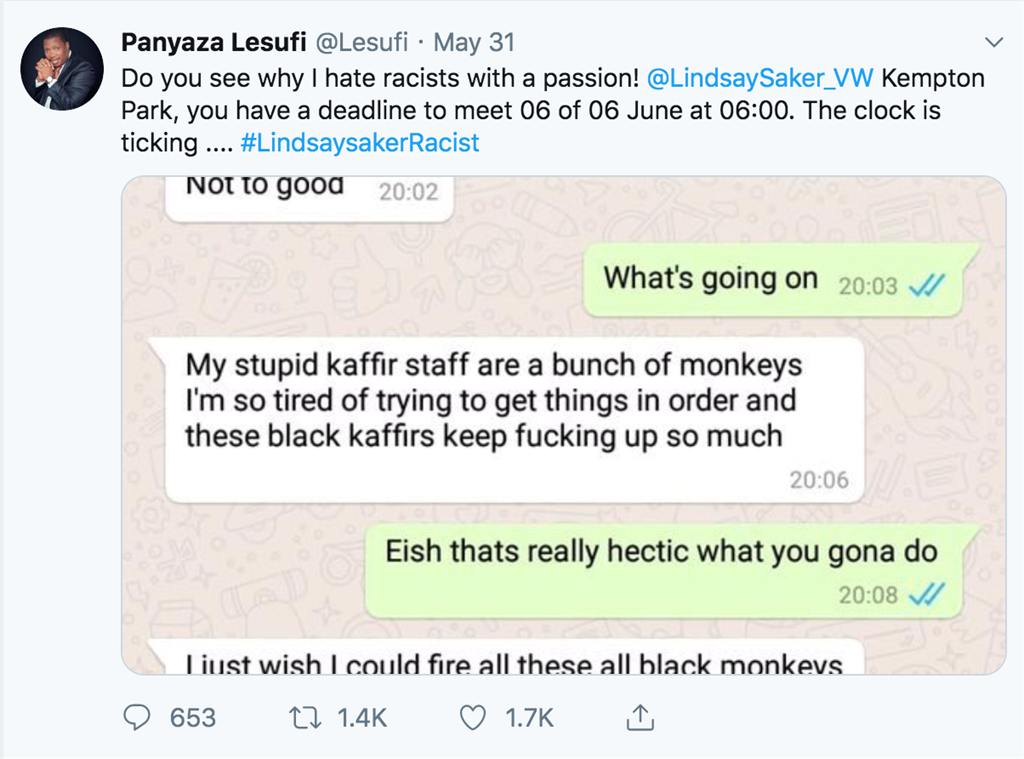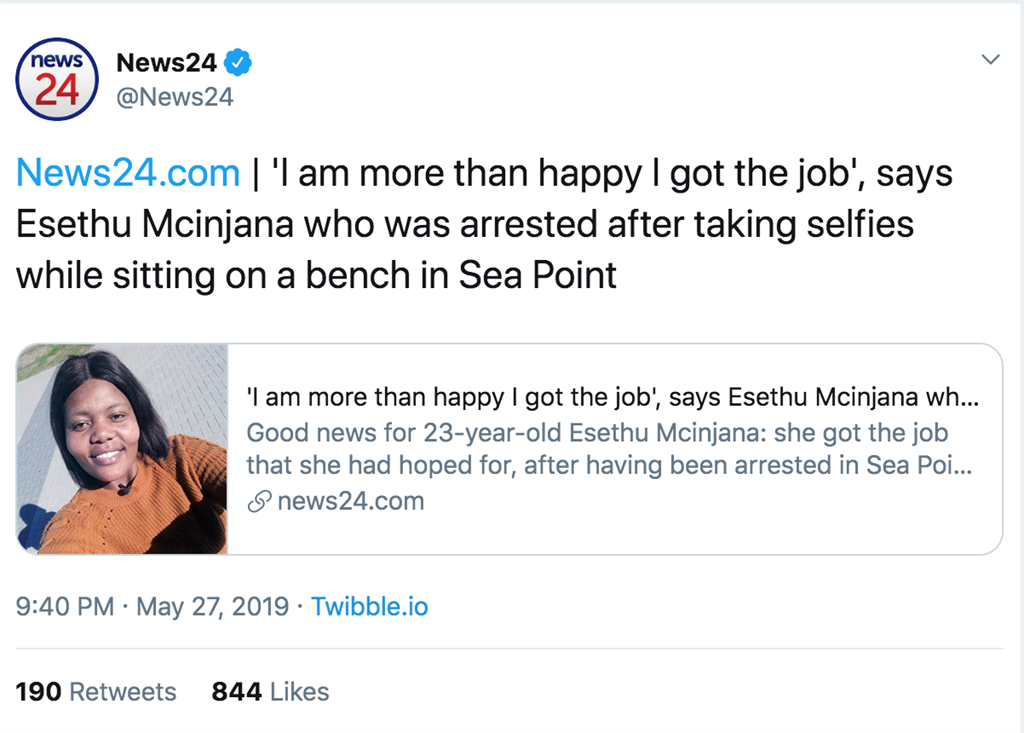Tweeters like Panyaza Lesufi and journalists such as myself need to be extra careful about how we wield the superpower of social influence, writes Mandy Wiener.
On Friday last week, just as a statement was being issued about Panyaza Lesufi's swift move from finance back to the education portfolio, the Gauteng MEC retweeted what appeared to be a screengrab of a grossly racist WhatsApp conversation.
Lesufi, who is known to effectively call out corporates on social media, issued an ultimatum to Johannesburg Volkswagen dealer Lindsay Saker. He did this without checking the authenticity or origin of the message.
Then he got swept up in the announcement of his shift to education MEC. He trended at the number 1 spot in South African Twitter throughout the afternoon, ostensibly because of his reappointment. But the Lindsay Saker tweet got retweeted another 1700 times and when it emerged that the WhatsApp message was a fake and the service manager Shalen Singh was being framed, it was too late. Lesufi apologised but the damage had already been done.
Over the last fortnight in South Africa, we have seen a series of incidents playing out on social media that have been picked up by the mainstream media with significant consequences. Some positive, some negative, but all profound.
The story of Cape Town petrol attendant Nkosikho Mbeke, who gave motorist Monet van Deventer R100 out of his own pocket, went viral after a social media post. Nearly half a million rand was raised for the Shell employee through a crowdfunding campaign because of the public sympathy garnered by the post and subsequent articles written about him.
Then there's the tale of 23-year-old Esethu Mcinjana who ended up getting the job at a Sea Point hotel she was waiting to be interviewed for, when she was arrested for taking selfies. Public pressure on the police as a result of the outrage on Twitter was immense.
What this selection of incidents showcases is the power of social media to influence public sentiment. At times, Twitter in particular, can be an echo chamber and it appears that recent research confirms this.
In April, results of a new study from the Pew Research Center showed that about 80% of tweets are sent by just 10% of users. This is an indication that Twitter isn't representative of how most people think. "The median user tweets just twice each month, but a small cohort of extremely active Twitter users posts with much greater regularity," according to Pew. Social media is not reality and not necessarily an accurate reflection of how the majority of people see the world.
I would hazard a guess that amongst the most active of those on social media platforms are journalists hunting for story leads. When a Twitter post like any of those mentioned above is picked up by mainstream media, its reach is obviously amplified. Isolated events that in the past would have gone unnoticed are now given a global audience from just 280 characters typed up on a screen. This democratisation of the news media is laudable but it comes with great risk and responsibility.
One of the knock-on effects is lazy journalism and reporters that write up stories off of tweets are more commonplace than they should be. Getting a quote from a politician is now much easier than picking up a phone or scheduling an interview with a spokesperson – most of the new Cabinet ministers tweeted their reactions in the hours after the president's announcement. This can also be one of the best attributes of Twitter – the accessibility of politicians and public figures to the man on the street.
What these highlighted examples also emphasise is how cautious we, who are active on these platforms, need to be. One relatively innocuous post could explode and go viral without us expecting it to. Tweeters like Lesufi and journalists such as myself need to be extra careful about how we wield the superpower of social influence. Our intentions may be noble but the impact our actions have on the subjects of our posts could be enormous. Just ask people like Singh, Mbeke and Mcinjana about how the glare of the public has changed their lives, for the better or the worse.
- Wiener is a specialist reporter for News24.
** Want to respond to the columnist? Send your letter or article to voices@news24.com with your name, profile picture, contact details and location. We encourage a diversity of voices and views in our readers' submissions and reserve the right not to publish any and all submissions received.
Disclaimer: News24 encourages freedom of speech and the expression of diverse views.The views of columnists published on News24 are therefore their own and do not necessarily represent the views of News24.




 Publications
Publications
 Partners
Partners
























